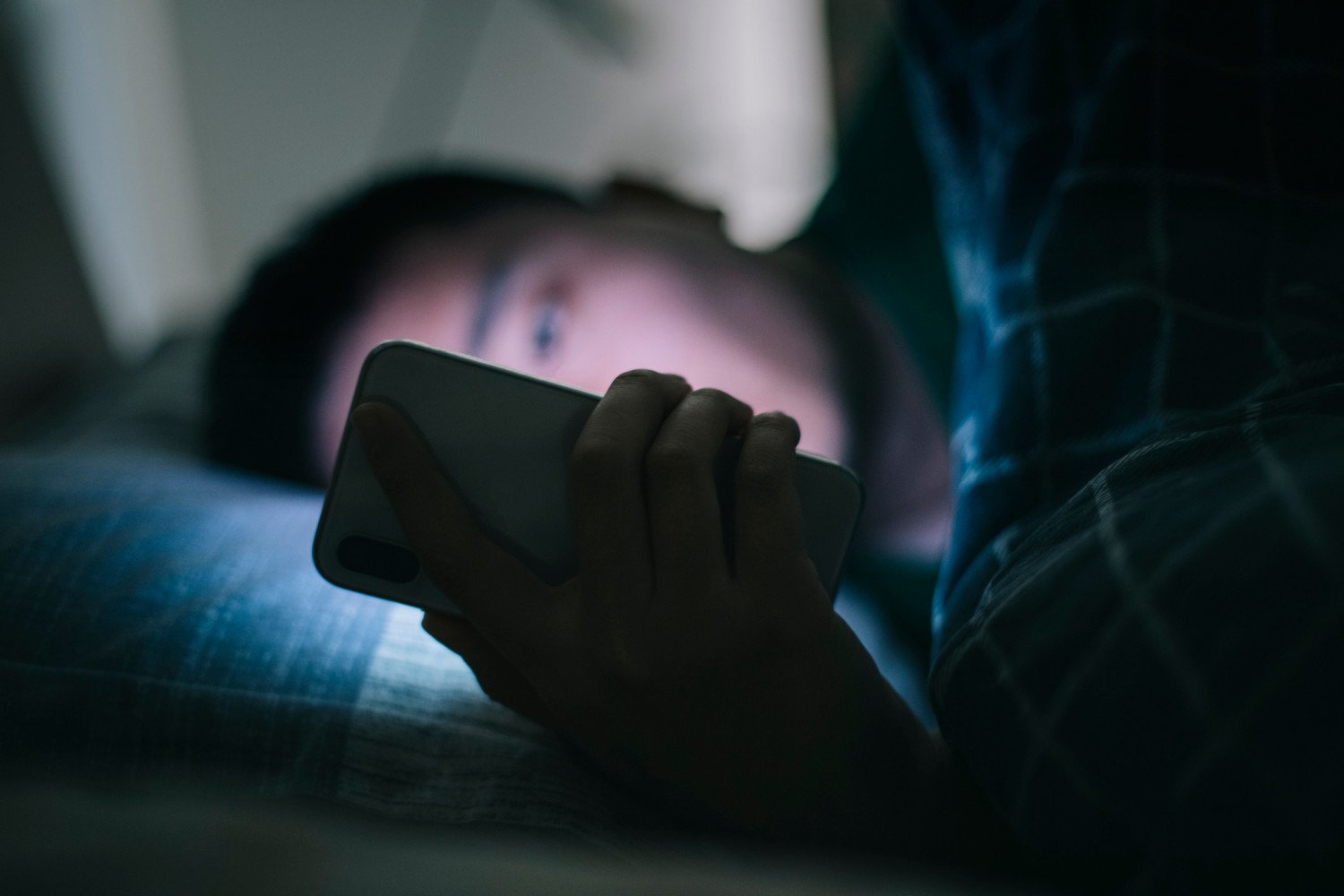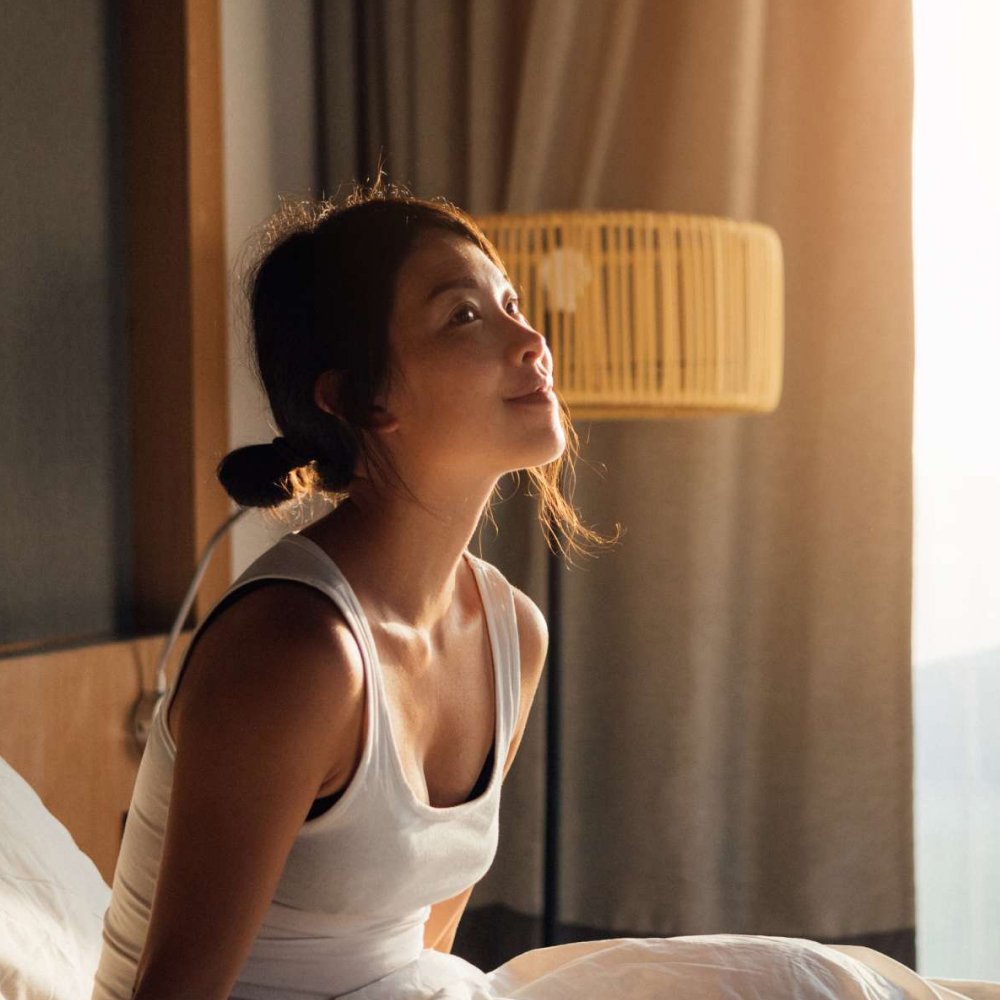Does screen time before bed *actually* affect your sleep?
Screen time before bed can affect the quality of your sleep, but there are ways to use technology in the evening without compromising a good night’s rest.
From the smartphone alarm that wakes us up to the late-night Netflix binge on our computers, digital devices are embedded in our daily routines. And for many of us, our screens are by our side from the moment we wake up until we nod off.
Many of us treat our devices like an extension of ourselves, always within reach. But there's a growing concern — could our bedtime digital rituals be stealing our sleep? Are our screens playing a role in our restless nights?
How does screen time before bed affect sleep?
Science has some answers around how using our devices before bed impacts our sleep, and they're pretty compelling.
Screen time before bed increases blue light exposure
Screens emit blue light, known to suppress melatonin production— a hormone crucial for regulating sleep.
Screen time before bed can affect your mood
Social media use has been linked to depression, anxiety, and poor sleep quality. Make your bedroom a social media-free zone.
Screen time before bed can overstimulate the brain
When you're scrolling (or doomscrolling) through the news or laughing at memes, your brain is stimulated. Instead of relaxing and preparing for rest, it’s busy processing all the information, making the transition to sleep more difficult.
Your device may entice you to stay awake for longer
The digital world is enticing—the algorithms are designed to know what will catch your attention next. So that "one last" video often becomes ten, pushing your bedtime later and later. When you repeatedly sleep less hours than your body needs, you risk building up sleep debt which over time can have mental and physical impacts.
Screen time before bed may disrupt your sleep-wake cycle
Over time, excessive screen use can upset our body's natural sleep-wake rhythm. Also known as your circadian rhythm, it’s your body's way of telling you when to wake up or wind down, making you sleepy at night and alert during the day. But with screens in the mix, things get disrupted. In the longer term, this can lead to insomnia, so it’s best to make a conscious effort to fix your sleep schedule.
Studies have found that smartphone use, in particular, can decrease both sleep duration and quality. While the phone’s content can keep us hooked, understanding the effects of the light behind the screen can lead you to make better nighttime choices. And for those TV addicts out there, evening television isn’t much better.
💙 When it’s time to wind down in the evening, consider a guided meditation like Soothing the Body for Rest with Dr. Eric López Ph.D.
6 tips for using technology at night
It can feel hard to get the balance right with screen time. On the one hand, you've got the convenience and joy of technology (who doesn't love a late-night puppy video?), but on the other, you're battling its sleep-disturbing effects.
While limiting your tech use before bed is helpful, there’s also nothing wrong with using sleep-centric technology like white noise or a Sleep Story to help you settle in for bed. Just be mindful in your practices and check out the guidelines below to help you find balance.
1. Create a screen-free zone (or at least stick to listening versus looking at your phone)
Ideally, keep screens out of your bedroom. This helps signal your brain that the bedroom is a place for relaxation and sleep. The exception can be if you’re using your device to provide you with sleep-centered content like a Sleep Story, soundscape, or ambient sound like white noise to help you sleep.
💙 White Noise Ocean Surf is one of our favorites. It combines white noise and a peaceful ocean soundscape.
2. Set a technology curfew
Try to put your devices away at least an hour before bedtime, unless you’re using audio-only content (more on that in a sec). We know it’s hard to put down your phone, but it’s worth it.
💙 Put on your favorite Sleep Story like The Hound of Baskervilles. Then set your phone down.
3. Use blue light filters
Many devices offer settings or apps that reduce blue light exposure during the evening hours. You can also get external filters and snazzy blue-light filtering glasses.
4. Keep a light on
Avoid using screens in total darkness because the contrast between a bright screen and a pitch-black room can strain the eyes. If you absolutely need to use your device, dim the brightness and turn on a soft lamp.
5. Try audio-based mindfulness practices
There are plenty of mindfulness practices to help you get better sleep. You can switch up your device use and embrace soothing audio instead of visual activities. You might consider listening to music, trying a breathing exercise, or relaxing with a gentle meditation session.
💙 Soften into Sleep with Chibs Okereke combines progressive muscle relaxation and the 4-7-8 breathing technique to help you drift off peacefully.
6. Stick to a supportive bedtime routine
Create a ritual that tells your brain it's time to wind down. This could be listening to music, reading a physical book, journaling about your day, practicing deep breathing exercises, or sipping chamomile tea.
By tweaking a few habits and introducing new ones, we can enjoy the digital world and still get essential sleep.
Screen time before bed FAQs
Q: Is screen time good before bed?
Screen time can impact the quality of your sleep. Electronic screens, especially smartphones and computers, emit blue light. This kind of light can upset your body's production of melatonin, a hormone that regulates sleep. So, while catching up on a TV show or reading an ebook might feel relaxing, the blue light exposure might make it tougher to drift off afterward.
Q: How long before bed should I stop screen time?
Pausing screen-related activities at least an hour before bedtime gives your brain a chance to wind down and signals to your body that it's time to sleep. However, if you push that buffer to 90 minutes or 2 hours, the benefits can be even greater.
Q: Is screen time bad for kids before bed?
Children might be even more sensitive than adults to screen time before bed. Screens can stimulate a child's mind, making it trickier for them to settle down. Plus, the blue light can disrupt their natural sleep cycle. For children, establishing a screen-free bedtime routine can make a difference, ensuring they get the deep, restful sleep they need to grow and thrive.
Q: How many hours before bed should you watch TV?
Watching TV can be different from, say, scrolling through your phone. TVs, especially modern ones, might have less blue light than smaller devices. However, the content you watch can either relax or stimulate your brain. If you're watching action-packed thrillers, switch to something more mellow as bedtime approaches. Ideally, switch off your TV an hour before bed to ensure ample wind-down time without screens. But remember, everyone's different, so experiment to find what works best for you!











